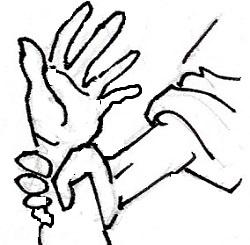
“I have come not to abolish but to fulfill” (Matt 5:17).
Sixth Sunday in Ordinary Time
Sir 15:15-20; Ps 119; 1 Cor 2:6-10; Mt 5:17-37
Many years ago, when I was teaching religion in a high school in Dallas, one of my students ended a discussion about Jesus’ teaching on morality beginning in the heart with the comment, “Then I guess we’re all sinners.” Specifically, we were talking about Jesus saying that looking at someone with lust was like committing adultery with them.
With youthful candor this young man expressed one of the deep truths of the Gospel as a grace and not an accomplishment. Who among us can say they have never experienced the lust Jesus described? Who among us can say they have never passed an angry judgment in their hearts at another person as a fool? We all must be sinners.
His comment was a truth most young people know by high school, that many of the adult voices in pulpits and at lecterns chastising sinners are themselves sinners, either by their behaviors or in the failure to quiet the impulses that make fools of us all when we talk about being good people, pure of heart and righteous models for others. Those who do not know this are hypocrites.
The radical point of Jesus’ teaching was that sin begins in the heart. This is radical because most people believe that as long as they don’t act on their inner desires, they are OK. Thoughts and words are one thing, but doing something is the actual threshold of responsibility and culpability. Jesus focused on sin at its inception, not in the deed but in the desire born in the heart.
Jesus’ confrontation with his religious critics zeroed in on this zone of external and internal consent. For them, breaking the law was the line, not intent or the disposition to anger, judgment, pride, envy, jealousy and lust, which remained opaque and private. He calls them hypocrites not because they are sinners but for touting and posturing at public perfection and moral superiority while entertaining the sins they condemned in others.
When Pope Francis said in an early interview that he was a sinner, he was not posturing or being rhetorical. He really meant that his life was only possible because God had shown him mercy. His conversion occurred in a profound encounter with his own sinfulness. This revealed the impossibility of ever overcoming his inner weaknesses on his own. It was followed by a liberating experience of mercy. His papal motto, Miserando atque eligendo, “he mercied me and chose me,” summarizes his entire spiritual journey.
Jesus was attacked by his critics as a law breaker and a friend of sinners. In fact, he was setting a much higher standard than the law by calling for holiness based on humility and reflected in compassion for everyone, whatever their failings and struggles. Mercy sets us free from the false promise of meritocracy and the need to judge our fellow sinners by our own superior standards, always an exhausting and futile exercise.
Today’s Gospel invites us to pray for the gift of mercy, the radical fire that burns away the pride that separates us from the rest of humanity and invites us to return to the joyful freedom only God’s love can give us.





